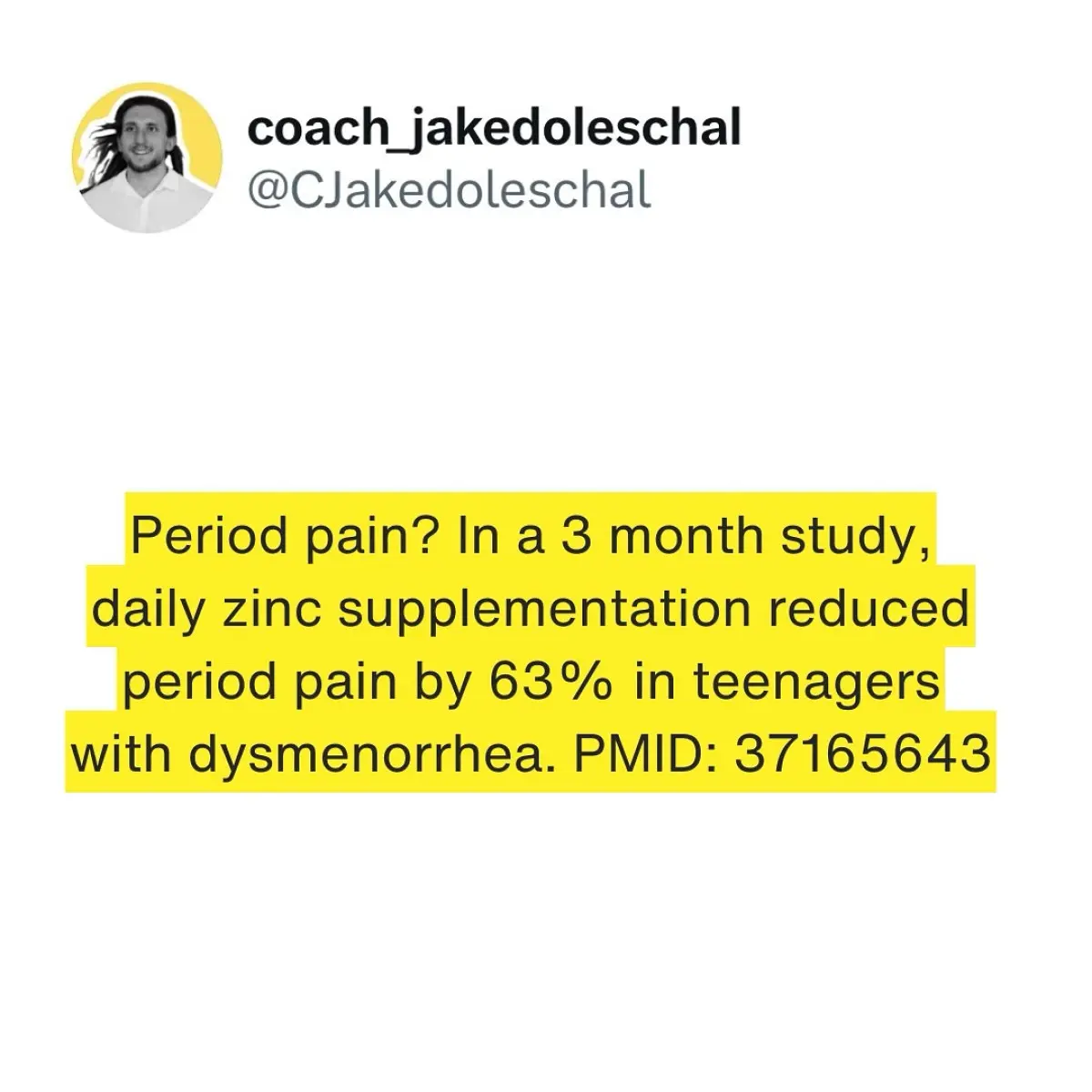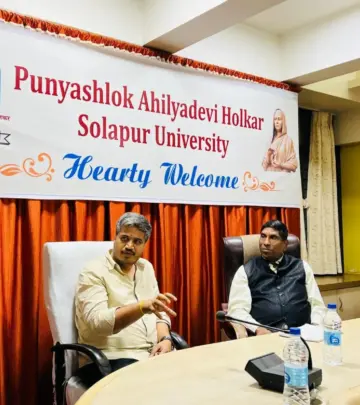Zinc Sulfate Reduces Period Pain in Teen Study
Trial in 103 teens reveals 63% reduced pain, sparking interest in using zinc sulfate daily.

Image: Instagram
A recent 12‐week study exploring the effects of zinc sulfate supplementation has shown promising results in alleviating period pain. The study involved 103 high school students and demonstrated a 63% reduction in pain intensity, more than double the reduction observed in the placebo group. While zinc sulfate may not serve as a standalone cure for dysmenorrhea, its supplementation appears to offer a significant improvement in pain scores by modulating prostaglandin production, increasing antioxidant enzyme activity, and reducing inflammation.
Study Overview
The clinical trial administered a daily dose of 40mg zinc sulfate to participants over 12 weeks. Researchers assessed period pain levels through standardized pain scoring methods. The findings revealed that subjects experienced an average pain reduction of 63%, a figure considerably higher than that of the control group receiving a placebo. This significant decrease hints at zinc sulfate’s potential role as an adjunct treatment for managing dysmenorrhea, particularly among adolescents for whom period pain can be especially disruptive.
Mechanism Of Action
Zinc’s reported impact on pain may be attributed to several biochemical pathways. The study suggests that zinc may exert its analgesic effect by modulating the synthesis and activity of prostaglandins—hormone-like substances that are known to trigger menstrual cramps. In addition, zinc appears to boost the levels of antioxidant enzymes, which help neutralize free radicals that can exacerbate inflammation. This dual action not only minimizes inflammation but also supports overall cellular health, thereby contributing to lower pain scores. Researchers advise that while the supplement is not a cure-all, it could be a meaningful addition to other conventional dysmenorrhea treatments.
Expert Viewpoints
Holistic Coach Jake Doleschal, widely recognized for his integrative approach to health and wellness, has long advocated for the use of nutritional supplements to support bodily functions. In his recent Instagram post, available via his official profile, he highlighted the importance of addressing inflammation and oxidative stress as key elements in the management of various health issues. Coach Doleschal’s endorsement of dietary interventions aligns with the study’s findings, suggesting that zinc supplementation might offer an accessible option for those suffering from significant period pain.
The integration of zinc sulfate into a daily regimen could be particularly useful for teenagers. Menstrual pain often interrupts academic performance and social activities, and a natural supplement that reduces discomfort may enhance quality of life. With school schedules and extracurricular commitments, a manageable treatment that offers tangible pain relief is a welcome prospect for many young women.
Implications For Teen Health
The implications of this study stretch beyond immediate pain relief. By reducing inflammation and modulating biochemical pathways involved in pain perception, zinc sulfate supplementation may help in establishing better long‐term menstrual health habits. Healthcare professionals note that while conventional pain management techniques—like the use of NSAIDs—are often effective, they can sometimes disrupt natural inflammatory responses necessary for other bodily functions, such as muscle repair. In contrast, zinc appears to support a more balanced and natural modulation of inflammation.
Furthermore, the study’s methodology and promising outcomes open the door for further research into the potential of dietary supplements to manage a variety of menstrual disorders. By identifying a non-invasive means to reduce discomfort, medical practitioners can consider incorporating zinc sulfate into broader treatment plans for dysmenorrhea. Such integrative therapies support a holistic view of adolescent health, where nutritional balance is seen as integral to overall well-being.
While some experts remain cautious—emphasizing that supplements should complement, not replace, other treatments—the evidence provided by this trial is a solid step towards rethinking pain management for menstrual discomfort. Future studies involving larger and more diverse participant groups would be valuable to further validate the efficacy and safety of zinc sulfate in this context.
The study serves as a reminder that even modest nutritional interventions can have a remarkable impact on quality of life. For teenagers who experience crippling period pain, zinc sulfate could represent a simple yet effective measure to regain control over their daily routines, from classroom learning to social engagements.
As research evolves and more holistic methods gain traction, natural supplements like zinc sulfate may well become mainstream in the fight against dysmenorrhea. The current findings offer hope and encourage continued exploration into nutritional strategies that support well-being without heavy reliance on pharmaceuticals.
Read full bio of Srijita De
























